
by Gideon Marcus
My World and Welcome to It
Have you ever found that if you read too much Harlan Ellison, you end up sounding like the guy? That same glib, hip, outraged polemic dripping with occasional yiddish and modisms. It's cool for a while, but it ultimately gets a little tiresome.
That's why it's a good idea, kiddies, to sample his latest collection, The Glass Teat, a little at a time. Otherwise, you might find yourself with acid in the belly and fire at your typing fingers.
Unlike the Ellison books we've reviewed before here at the Journey, Teat is a wholly unique animal—a collection of articles Harlan wrote for The Los Angeles Free Press (the "Freep") as its TV columnist from September 1968 to January 1970. For the most part, these are not reviews; Harlan was not hired as a critic of individual shows, but the whole small screen zeitgeist. And because the subject that most interests Harlan (just ahead of skirts and social justice) is Harlan, the column serves as a kind of memoir, the travel diary of a TV writer. Hey, write what you know, right?
Interestingly, though I consider myself something of an Ellison devotee (it's a love-hate relationship, but no one can argue the fellow can't compose), I found out about his latest opus in a roundabout fashion. Dig, I was reading the June 1970 issue of Yandro, wherein I found a delightful column by Liz Fishman. It's worth reading—you can write the Coulsons to see if they can get you a back issue, assuming the mimeo stencils and their cantankerous Gestetner is up for another run.
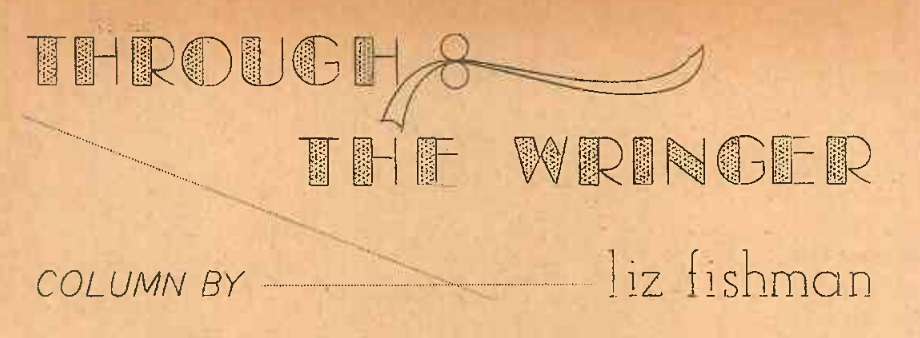
Long story short, after being accosted by a lech who puts Laugh-In's Tyrone F. Horneigh to shame, Liz was saved by a sunny "Matisse painting come to life". They got along just fine until said savior noticed what Liz was reading. It was "sho-nuff a dirty book." That is to say, it was by Ellison, and it had the typical blue phrases that punctuate his writing. The kind of shit you'd never find in my work.
Well, upon learning about Harlan's new book and its unusual nature, I scoured the bookstores of San Diego and managed to come up with a used, hardly touched, copy. Its spine was as smooth as a chiropractor's nightmare. As a result, I didn't get much off the cover price, but I don't mind supporting local business.
Land of the Giants
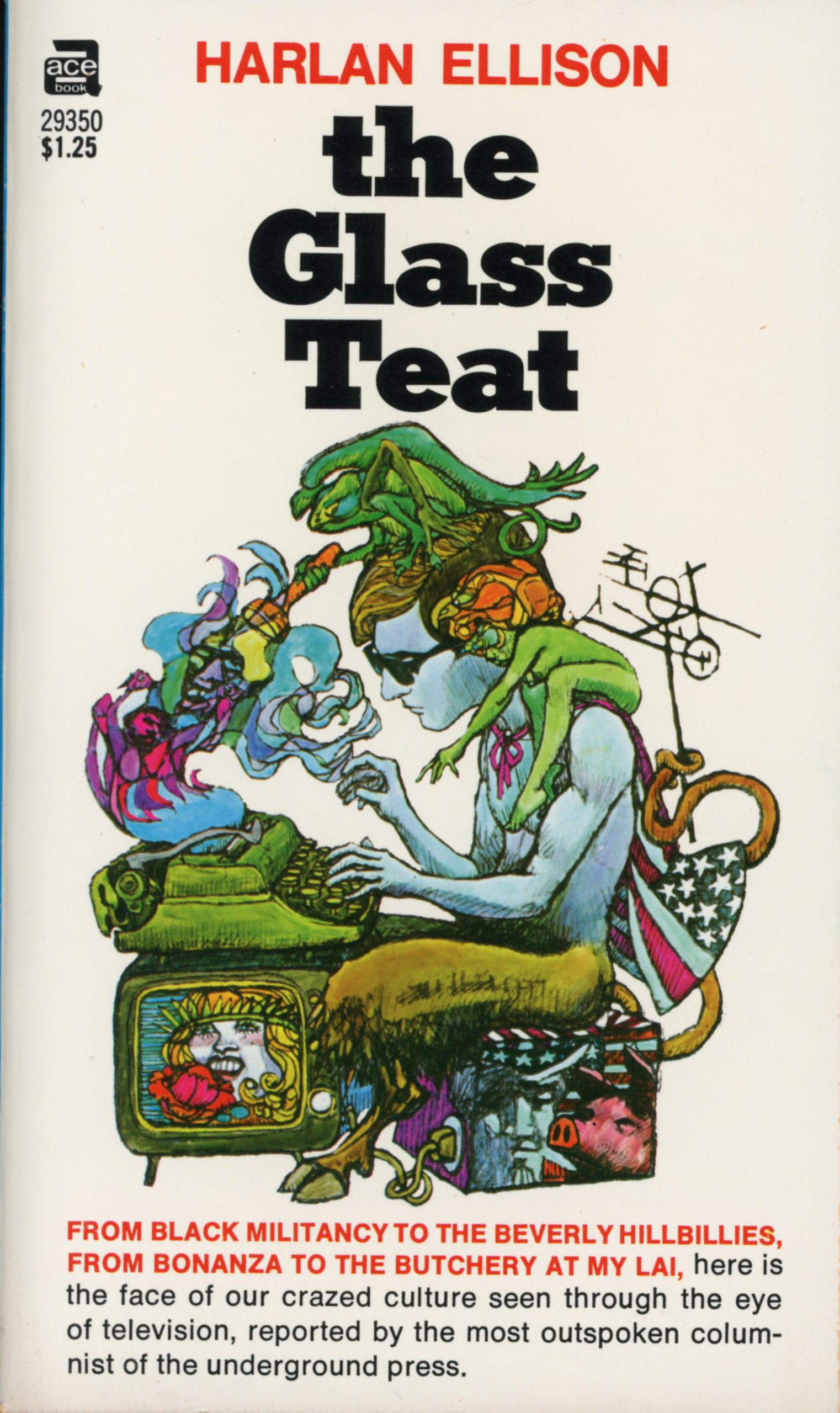
Cover by Leo and Diane Dillon
So open the cover, and what have we got? A nice introduction describing how Ellison ended up with the gig, crossing paths with Arthur Kunkin, editor of the Freep, at a party:
Kunkin: Hey, Harlan, how are you?
Ellison: Great, Art. How's the paper doing?
Kunkin: Fine. Why don't you do something for us?
Ellison: Why don't I do a TV column?
Kunkin: Okay.
Ellison: I can say what I want to say, and nobody edits it? Not a period, not a comma, strictly untouched?
Kunkin: Of course.
Ellison: Great. I'll do it.
Kunkin: Your first deadline is day after tomorrow.
Come to think of it, that's pretty much how I got my first job with a local paper.
What follows is a (mostly) weekly dated set of articles on a wide range of topics. All of them are at least moderately entertaining. Many are insightful. Some are quite moving. To the uninitiated, they have the ring of Truth, with which Harlan is so good at imbuing his work. Familiarity breeds contempt, however, and I find myself sharing an attitude toward Ellison well-expressed by Robert Silverberg in his latest submission to FAPA.
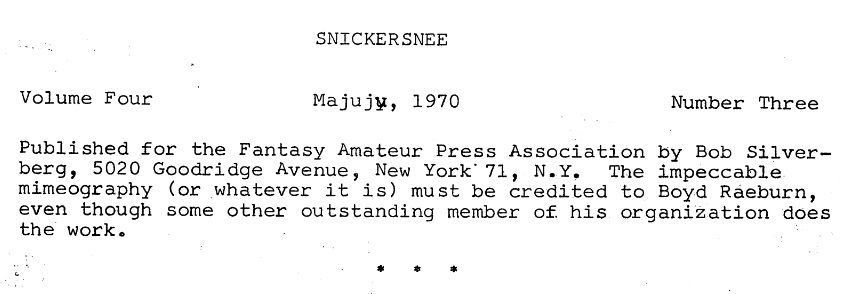
"A few writers have begun to make a career of accepting these invitations [to speak at colleges and other institutions]. Harlan is the outstanding example. These days he does hardly any writing, but swings around the country from Texas to New York to Alaska, dropping in on tank-town universities, tossing off speeches heavily salted with contemporary youth-slang, banging a few coeds, and picking up hefty fees. It’s not a bad sort of life, if you don’t mind living in airplanes a lot, seeing a bunch of dumb cities, and pitching your line to the current collegiate fads (revolution, ecology, etc.) which Harlan does in a pretty shameless way."
Silverbob tried the touring life once, and as one might expect, he found himself on a panel with Harlan.
"…off to [Rochester Institute of Technology] An audience of about 100, I’d say. Maybe half of them read s-f; the others were just there, apparently, because there isn’t much else to do in Rochester in the evenings. No moderator. We rambled on.
"My attempts to talk about technology in s-f were quickly derailed by Harlan, who wanted to talk about Harlan. Okay. Soon he was explaining, in nitty-gritty vocabulary, how he wants to reform all the world's evils through his fiction. Since reforming evils is big on campuses these days, he immediately captured the audience; I guess they could see him cleaning up pollution, aiding the blacks, and ending the war, all via the medium of his contributions to Galaxy. This struck me as a pretty blatant play to the audience, and I called him on it, pointing out that in fact his fiction is experimental, surrealistic, dadaistic, not at all the kind of Mack Reynoldsy didactic stuff he seemed to be saying he wrote. Which led into a pretty heated and exhilarating discussion between him and me on the purpose of art, the importance of social comment in fiction, etc, etc. And just as things were getting good, we were told to knock it off: the panel was over, and we had to go backstage to meet the faculty."
The Harlan Ellison Goodtime Hour
That's a lot of setup. I still haven't talked about what Ellison has to say. Well, that's because there's just too much. It's 300 pages of Ellison's current mood and opinion. To wit:
- it's about the Writers Guild (and how 90% of them can't write their way out of a paper bag—and the umbrage taken by his fellow writers at that observation.)
- About how no one (relatively speaking) cares about the fine programming on National Education Television when they've got fine drivel like The Beverly Hillbillies, Green Acres, and like that to enjoy.
- About how Harlan's script treatment for The Name of the Game didn't get developed.
- About the sheer insipidness of the King Family and the Lennon Sisters, blond bevies of plastic all, but also about how some white ladies really do have "Blue Eyed Soul".
- About how how Flip Wilson is a "mocha comedian" at best, not being honest enough to really be Black.
- About how Brazil's state-run TV was nothing but soul-crushing propaganda… until the coup last September.
- About how the Moon landing was cool and all, but kind of a let down after having read countless SFnal presentations of the event—and couldn't we have saved a lot of cash (and a lot of poor people) if we'd just stuck to robots instead of astronauts?
Here's a particularly good passage, from page 207, on the portrayal of women on TV:
"The only out of the contemporary chick offered in terms of TV images is Samantha (a witch), Jeannie (a genie), or Sister Bertrille (who can fly). The message is painfully clear: if you can't wiggle your nose and make miracles, or hop into the sky and fly away, or flip your ponytail and change the world, girls, pack it in and settle for being some guy's unpaid slavery. Because all those other women you see cavorting in phosphor-dot reality are inept, hampered with children, prone to execrable involvement or simply accident-prone.
"It's another scintallant TV season of lies and unusually off-center representations of still one more social element. Except this time it's a social element that is composed of half the population.
"One can only wonder how much longer the birds are going to allow themselves to be used as consumer machines for pimple-disguiser, hair-remover, smell-deadener and uplift bras. How much longer before they start demanding some authentic portrayals of themselves as human beings?"
Some shows got reviewed. Most were panned, but he had nice things to say about The Ghost and Mrs. Muir, the James Thurber-inspired My World and Welcome to It, Laugh-In, The Smothers Brothers (and ire for the cowardly CBS suits who canceled it), Mod Squad (not at first, but he warmed to it). And what I was waiting for—his glowing (and deserved) praise for David Steinberg's sadly aborted Music Scene.
He wraps it up with a three-part account of how he got invited to Dayton, Ohio to rap with kids, got too hip/blue for the staff (but not the students), and got his swansong canceled. Ellison cops to feeling like a phony for not fighting harder, expresses his admiration for the youth of today who did fight for him, and promises to gird his loins for the continuing, long winter of Agnixon.
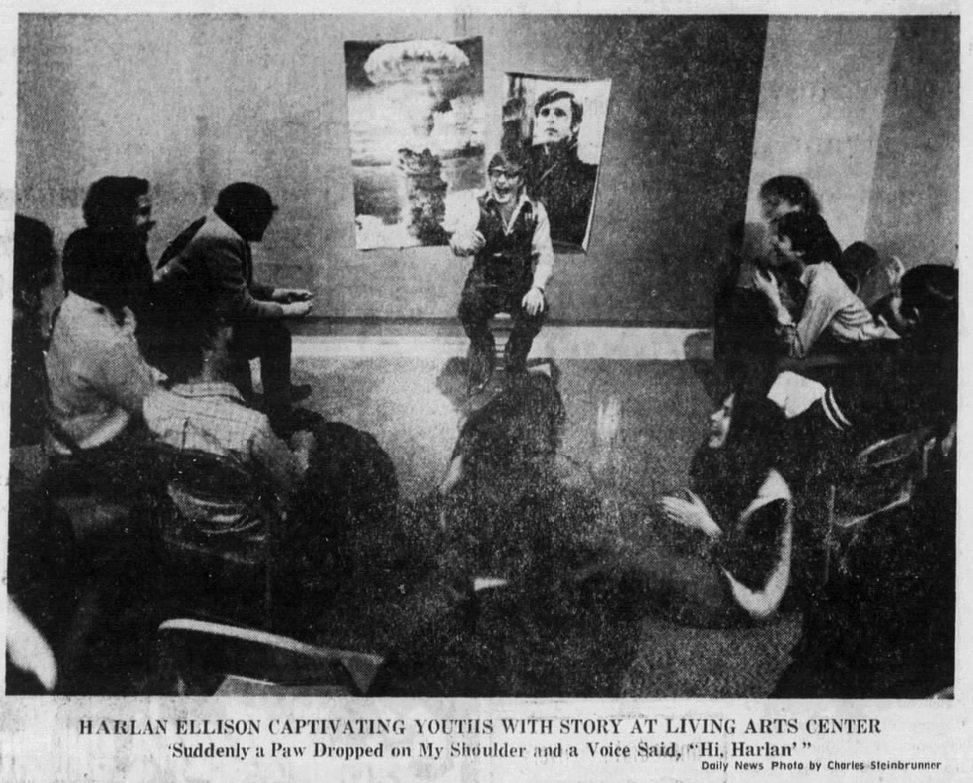
From the December 16, 1969 Dayton Daily News
Lancer
To quote a recent instant coffee ad: "But how does it taste?!" (see—I can be topical.)
Well, it's Ellison. Like I said, he's best in bite sizes. He's also at his most compelling when he gets out of his own way, like the two part piece on Susskind's roundtable of five "Common Men"—the most chilling set of fatuous, conspiracy-minded bigots you ever saw, who are mostly presented in their own quoted words. (Contrast that with a roundtable show I caught out of Philadelphia with seven of "the Silent Majority", who seemed rather thoughtful, but perhaps they'd all been culled from the liberal end of the pool.)
Anyway, The Glass Teat is worth reading. Ellison is always worth reading. Just keep that shaker of salt around. Harlan knows he talks bigger than he is (that's not a height joke, honest); have that fixed in your head, and you won't go far wrong.
Four stars.
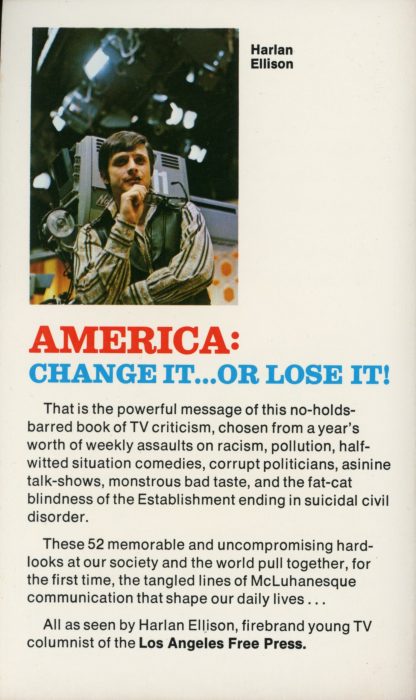
[New to the Journey? Read this for a brief introduction!]

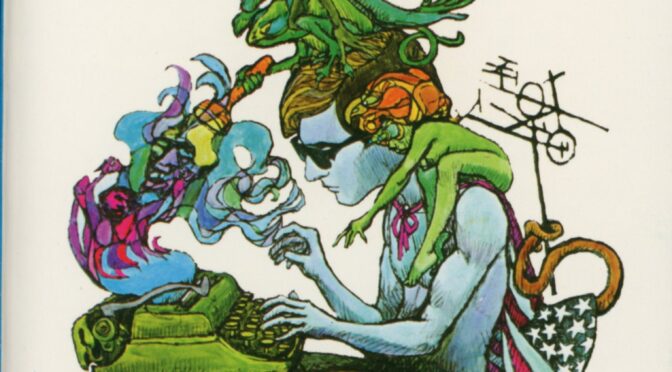


Fantastic breakdown of what appears to be an absolute deluge of writing to parse through! Thank you for taking the plunge into what I can only assume are endless tangents, side-comments, color commentary, and colorful play on words and pre-digest it down for us.
Looking forward to more!